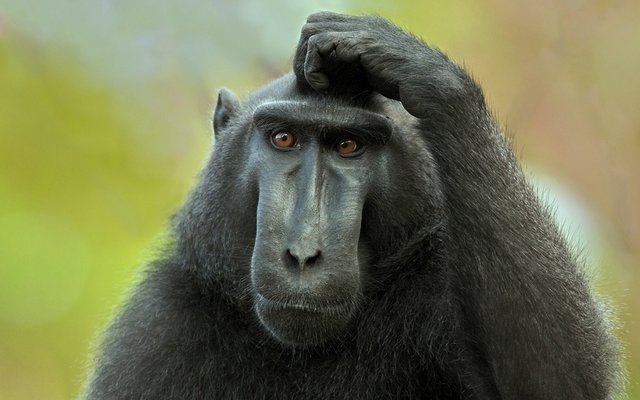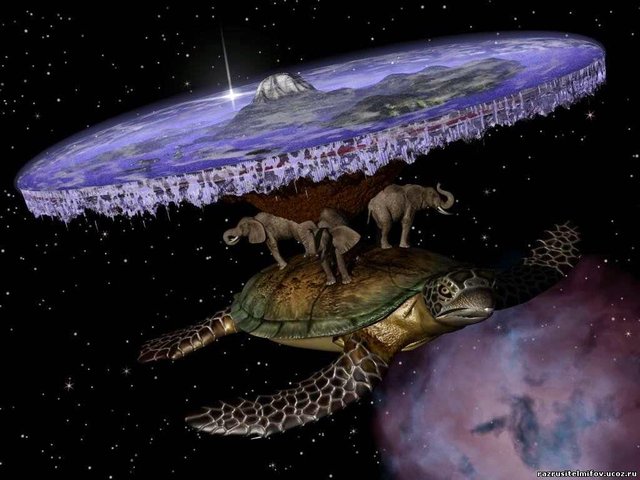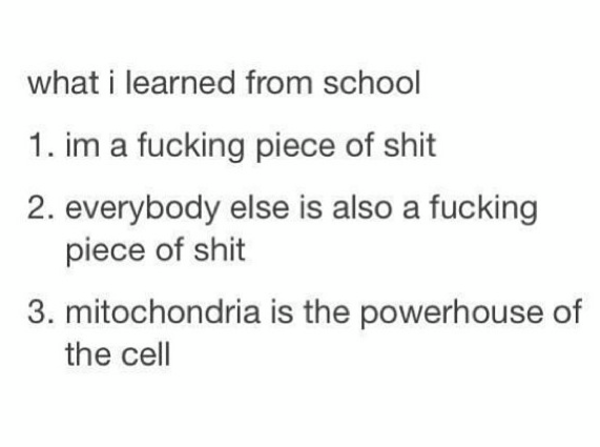The difference between what it is, and what you think it is
One in four people thinks that the sun revolves around the Earth and not the other way around. Four out of ten reject Darwin's theory of evolution. And even some graduates of Harvard think that the reason for the winter is colder than the summer is that the Earth has moved away from the sun.
People who lament the omnipresence of these and other basic scientific misunderstandings often point to bad education or blame religion or politics. But these kinds of mistakes often come from deep-rooted ideas that we all form in childhood and take us to adulthood.

The truth or your truth?
As children, we naturally create intuitive theories about how the world works, based only on our innate knowledge and our observations of it. These ideas are not only often wrong (they are also difficult to move, they persist after high school and even in science classes at the university level, every day I learn something new makes me feel more ignorant than when I started) our childhood intuitions continue guiding our decisions.
But what is more important, these instincts can have a great effect on political debates on broader issues such as climate change and vaccination. For me, there is a problem now. There is a misunderstanding that some people see science as another religion and worst of all, as a doubtful one.
This is not new, whenever a man (or woman, I do not want to start a vendetta with some feminazi in the community) of science, there are 100 who classify him as a heretic. And while in today's denial of science is in "vogue", scientists are returning the hit.
There are always going to be a number of people who think that science is counterintuitive (because it is, it is impossible for you to intuitively know that you have a common descendant with the zoo primates, unless you are very ugly and if that's the case, I apologize in name of the natural selection) And they have different ways of explaining the world and they want their children to know about these alternatives.

I saw recently that there are four NBA players who claim that the Earth is flat. Kyrie Irving was quoted saying:
"If someone did not teach you that you were spinning in a ball in orbit around the sun, is that what you would observe with your five senses?"
Sure. None of us would think that we are in a rotating sphere, in orbit, if we had not been taught that. It took hundreds of years for human beings to discover that fact and it is still counterintuitive for all children who learn it.
So, why do we perceive the world so badly? Is it just as Irving says, that the scientific realities of the world are beyond the grasp of our everyday experience? ... But it is easy to ignore the fact that we are not designed to perceive the world as it really works. We are designed to perceive the world in ways that help us lead our daily lives.

The true photo of the earth, leaked from NASA servers
There are 3 types of information, which in my opinion, we must take into account when we hear some madness coming from someone's mouth:
Innate knowledge: There are some concepts with which human beings seem to be born. Likewise, we have expectations about how objects will behave and interact with each other.
Experience: The first-hand observation of the world and interaction with the world. We will never perceive planet Earth as a sphere, we will perceive it as flat, because the ground is flat from our perspective, and we will perceive gravity as a force that pulls things instead of a force that pushes things towards the center of mass.
Culture: I refer to the culturally constructed knowledge that is transmitted from one generation to the next. Because everyone in a culture is predisposed to develop intuitive theories, they sometimes become a totally different set of beliefs. In a closed environment and away from the outside world, if the parents are idiots, they will instill that idiocy in their children.

But, who cares about one or two scientific misunderstandings?
Because there are fights over whether or not children should be exposed to evolution in schools. There are fights on public health issues that are related to evolution: the excessive use of antibiotics, the use of pesticides, how to deal with non-native species, how to even think about that issue.
On the one hand, it could be said that evolution is one of the most external issues in our daily life: Your understanding of evolution is not directly related to your decision to buy milk, in which career you will suffer for the next 5-7 years, if you like blondes or brunettes (in case someone asks me, brunettes), or if you vaccinate your son or not.
But on the other hand, it has these generalized consequences, where if you really get to the root of why people are confused, part of it is that they simply do not understand evolution and biological systems or how they are related and how they change over time.
It seems a trivial misconception that people think that humans and dinosaurs coexisted. But to maintain that erroneous idea, you have to have a vision really ... f*cked up of time, to not understand how many millions of years passed between the extinction of dinosaurs and the appearance of human beings. And all these things are linked to broader questions about how people think about biological systems.
On the one hand, I am telling you that this seems to be a time when science is under attack. But on the other hand, you can think that elementary school children now learn what were very advanced scientific theories decades ago. I know it's a contradiction and no, I'm not under any narcotics, I'll explain my point of view:
It is easy to think that we are in a dark moment when you see Trump signing an executive order that invests climate-friendly policies (it is). But, on the other hand, there is a lot of progress under the radar, kids are taught all these things that were at the forefront of scientific research years ago, and now they do memes about this knowledge.

Germs are a good example. We have only known about germs for 195 years (thanks Google) and now every child knows the word germs. We do not understand what germs are initially, but it works even as a reference. They know that there is an invisible cunt that makes you sick and then you realize that it is a biological agent that invades your body, reproduces itself, is alive and can not be killed.
The average educated person will know much more than the average educated person did a generation ago. I hope.
sources:
- Scienceblind: Why Our Intuitive Theories About the World Are So Often Wrong
- EstudioTeca
- Wikipedia
- NPR
- Gallup
- Mashable
pics: